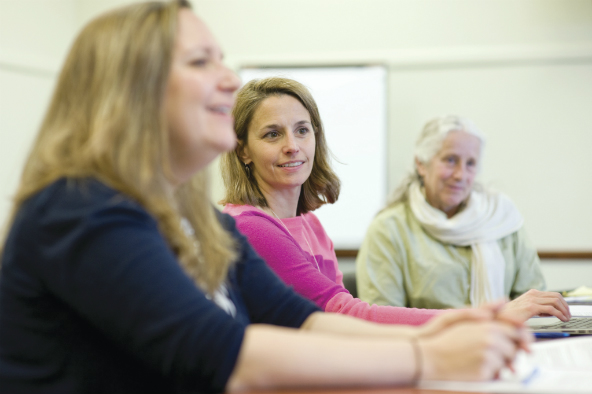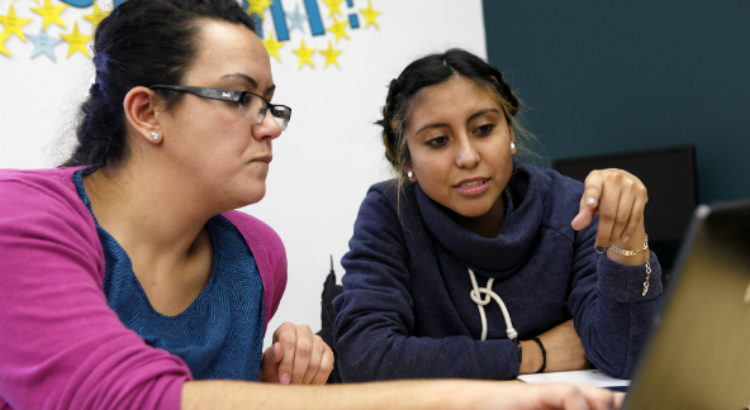How can we transform the university research enterprise to enhance its social impact?
Over the last decade, universities have faced steady criticism for elitist practices such as political bias, hoarding wealthy endowments, and providing insufficient economic returns for students. In light of this, institutions that turn their attention to serving the public good may be best poised to thrive and deliver lasting value. Some universities are embarking on innovations to support social engagement among students, and initiating university-wide efforts to educate students for social impact. These ideas rightly aim to prepare public-minded leaders for the future. But a powerful innovation is also available for the present: reshaping incentives within the university to support faculty research that responds to real-life challenges.
Typically, researchers are insulated from the criticisms of pundits and politicians who question whether universities deserve the status and privileges they enjoy. University faculty operate within a system that rarely asks them to prove their value to a broader public. Rather, academics are rewarded for developing and testing theories, and publishing findings in books and journals in their fields. Their charge is to generate knowledge, and many do so prolifically. But unlike in engineering and medicine, where transferring new knowledge into workable technology is often regarded as the ultimate professional accomplishment, such “tech transfer” is uncommon in the social sciences. Despite innovation in the content of research, research institutions in the social sciences have not been innovative when it comes to ensuring that the outside world uses research. Yet such innovation may be the key to social impact, and thus demonstrating the value of research to those who question its worth.
Some writers argue that social science research fails to break into the mainstream because it is not sufficiently timely, relevant, or accessible—and that is no doubt part of the story. But studies about the use of research paint a more complex picture. More than any quality of the evidence itself, it turns out that the quality of relationships between producers and consumers of evidence, as well as the intermediaries who knit evidence producers and consumers together, is at the heart of increasing research use in policy and practice. Universities do not typically reward faculty for the time and effort needed to build and nurture these relationships, but doing so would be a transformative step in increasing the positive social impact of academic research.
Relationships between producers and consumers of evidence are at the heart of increasing research use in policy and practice. (Photo by Tanya Braganti for the William T. Grant Foundation)
The idea that universities should foster relationships with and respond to their communities is not new. The University of Wisconsin-Madison, where I taught for three decades, has long promoted the notion that “the boundaries of the university are the boundaries of the state,” meaning that the university should produce knowledge that promotes a thriving social, cultural, political, and economic life across the state. While this notion persists, it has lately battled with a competing view among leading members of state government, who believe the primary role of the university is to prepare workers for the state’s labor market. Meanwhile, other large universities are making progress in developing and incentivizing the types of relationship-building that can improve and strengthen communities outside of campus. Rice University, for example, has adopted as one of its main goals to “engage Houston and empower its success,” proclaiming, “We will engage Houston as a focus and partner for research and education, leveraging our broad expertise on critical urban issues to be a driving force in enabling Houston’s success as a 21st-century metropolis.” Among the specific efforts supported by the university is the Houston Education Research Consortium (HERC), a partnership between the university and the Houston Independent School District that conducts research aimed at addressing the challenges of educating Houston’s urban population. Since 2013, HERC has provided 25 research reports to the district on topics such as English learners and school choice, the effectiveness of the district’s pre-kindergarten program, and predictors of high school dropout, and others. The district has used these reports its decisionmaking. Partnerships of this sort help strengthen communities by growing their human and social capital, while also brandishing the value of the university to the state and city: HERC and its parent organization have attracted considerable philanthropic support from civic-minded allies who support the university’s local engagement.
Without support at the institutional level, most university researchers have little professional incentive to participate in such partnerships or address questions more in line with local contexts. It is time for this to change. To spur such action and provide an example for universities across the nation, my colleagues and I at the William T. Grant Foundationrecently launched a grants competition for universities willing to re-think their incentive structures, and reward engaged scholarship and research-practice partnerships. TheInstitutional Challenge Grant program calls on universities to partner with a public agency or nonprofit, develop a joint research agenda, provide research fellows to execute the research, and build the capacity of the agency to use evidence from research in its decisionmaking. In addition, the grant asks that the university propose new ways to support and reward faculty members who participate in this type of work. For example, universities might provide teaching releases or summer salary, or count the influence of research on policy and practice in career advancement decisions.
After receiving bids from 41 institutions, in April we awarded the first grant to Cornell University, which is working in partnership with the Cornell Cooperative Extension of Tompkins County to address the opioid crisis in upstate New York, particularly the increasing rate of child maltreatment that has accompanied rising opioid addiction. Researchers will evaluate two evidence-based interventions based in the judicial and child welfare systems, and help providers develop effective responses to the problems they confront. Even before applying for the grant, Cornell had taken steps to engage its local community through auniversity initiative that fosters research and other activities with community partners. The current work will push the university even further in thinking about how to develop an infrastructure in which faculty are rewarded for participating in partnerships and conducting research that responds to community concerns.
 Professors Laura Tach (foreground) and Rachel Dunifon of Cornell University and Anna Steinkraus (background) of Cornell Cooperative Extension of Tompkins County plan their partnership. (Photo courtesy of Cornell University)
Professors Laura Tach (foreground) and Rachel Dunifon of Cornell University and Anna Steinkraus (background) of Cornell Cooperative Extension of Tompkins County plan their partnership. (Photo courtesy of Cornell University)
Ultimately, pursuing positive social impact by harnessing the talent and knowledge of university faculty can turn around perceptions of the value of higher education. But faculty will need to become more fully engaged in directly responding to real-world problems. As currently structured, universities offer few rewards for researchers who participate in partnerships primarily designed to improve policy and practice. Reorienting incentives in the university—not to diminish theory-driven, internationally renowned studies, but to enhance the value and visibility of work that provides answers for those who confront the daily challenges of today’s world—can go a long way toward making the change possible.
*Fuente: https://ssir.org/articles/entry/the_future_of_higher_education_is_social_impact








 Users Today : 30
Users Today : 30 Total Users : 35460161
Total Users : 35460161 Views Today : 46
Views Today : 46 Total views : 3418829
Total views : 3418829